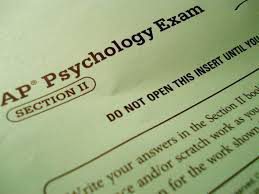As upperclassmen prepare to apply and eventually attend colleges, AP classes are a major part of many students’ schedules. Earning college credits as well as raising weighted GPAs is vital for creating attractive college applications and increasing acceptance chances.
Although there are a couple Advanced Placement classes open to freshmen, a majority of students begin earning their college credit courses sophomore year or later. Tenth grade is when options of multiple AP electives become viable choices for schedules. Human Geography and Psychology are two of the most popular electives that students are advised to take as an “easy AP” or a good class to settle in to the intensity of college-level work.
While it is a common belief that Psychology is one of the easiest APs offered at Leesville, the truth is quite far from that.
“I heard from many people before I started the class that AP Psych is extremely easy, and [the class] is actually much more work than I expected,” said Chloe Horton, a sophomore taking AP Psych this spring.
Because it is a college course, the curriculum moves at a rapid pace, and students are expected to do their portion of work and studying to keep up.
Every student receives a psychology textbook at the beginning of the semester to take home. Teachers anticipate that students take their own notes about the text every night. Since students are expected to absorb information at such a quick pace, teachers are unable to instruct every piece of the curriculum during class time. To make up for this, teachers hold students to the assumption that they will read and take notes each and every day after class.
Alongside notes, students often receive other work to do outside of class. These assignments can range from partner projects, to basic worksheets, and to individual essays. Also, high schoolers enrolled in the class need to study and review the information taken in their notes and learned in class. Unfortunately, other classwork and, more importantly, time constraints give limitations to what students are able to accomplish in a day.
A major problem that some 50% of students have to handle when taking AP Psych, or any other AP class in the spring semester, is the exam date. AP exams begin a month before finals for other classes at Leesville and, therefore, largely limit time for learning in class. 10 units must be moved through quicker and teachers must administer tests faster than they would be in the fall semester.
Often, this setback creates stress for AP Psych students in the spring and can force students to develop a negative attitude towards the class.
“Juggling a sport, other classwork, and work for this AP class this semester has been really overwhelming. We have to rush the information in Psychology because we have an earlier exam, and it’s very stressful…everything feels so crammed,” said Katie Groff, another sophomore in the spring semester of AP Psych.
Luckily, AP teachers try their best to give students as much optional work and as many helpful studying strategies as possible. Teachers generally seem to have empathy for students completing college level work and therefore give efforts to ease stress and anxiety about making a good grade.
Evidently, it is not an easy task to finish the class with a high average. Reading the textbook every night is crucial to any student’s success, as well as completing all other work, extra credit opportunities, and paying attention in class.
While some students say that honors classes are fairly easy, APs are no joke. Doing all the work and being a proactive, responsible student is required for earning a grade that will raise a weighted GPA. The advantages of completing college credits are obvious, but classes like AP Psych are most certainly not an “easy A.”

Leave a Reply